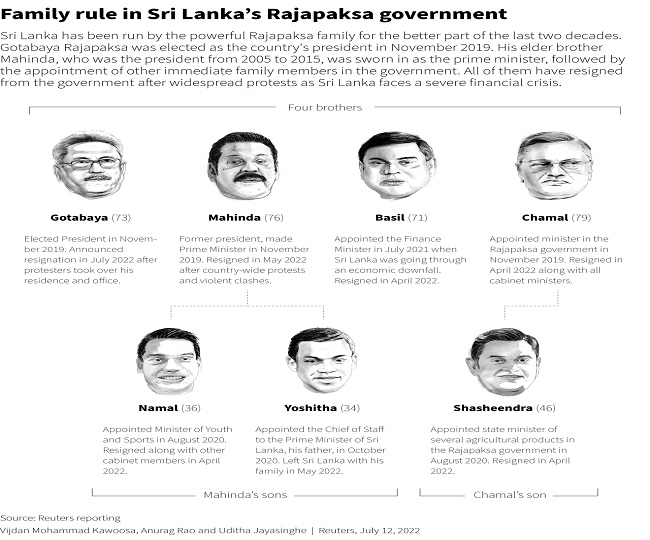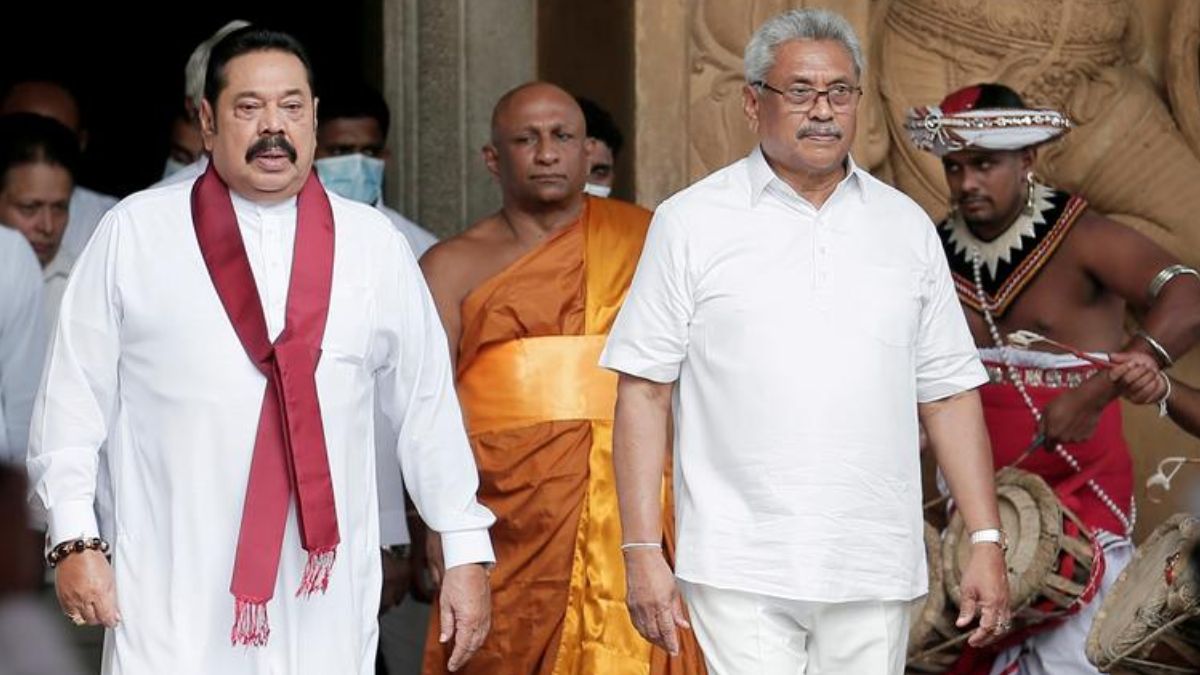- By Aalok Sensharma
- Wed, 13 Jul 2022 07:48 PM (IST)
- Source:JND
The Rajapaksa dynasty has dominated the politics of Sri Lanka ever since the island nation got rid of the colonial rule. However, the rule of the Rajapaksas came nearly to an end with the beginning of an economic crisis in Sri Lanka.
In May, Mahinda Rajapaksa had resigned as the country's Prime Minister amid protests. Two months later, his younger brother and President Gotabaya Rajapaksa fled the country, leaving no one from his family in a position of power.
Gotabaya, who earlier vowed to remain President of Sri Lanka till 2024, is currently in the Maldives and it is being speculated that he might flee to Singapore soon.
HOW THE DOWNFALL OF THE RAJAPAKSAS BEGAN IN SRI LANKA?
The downfall of the Rajapaksas started in April this year after protests erupted against the Sri Lankan government amid a shortage of essential items, including food, medicines, and fuel.
The protesters blamed the Rajapaksas for Sri Lanka's worst economic crisis. Amidst the protests, Mahinda resigned in May. With his resignation, Yoshith Rajapaksa's stint as chief of staff also ended.
Earlier in April, Mahinda's other son Namal Rajapaksa, elder brother Chamal and younger brothers Basil and Shasheendra had quit as ministers.

The family tree of the Rajapaksas/ Photo: Reuters
But despite the massive protests, President Gotabaya had vowed to continue his full tenure. However, Gotabaya's residence was taken over by protesters last week, who were demanding his resignation. Gotabaya first went underground and then went to the Maldives with his family members.
Gotabaya, who is expected to resign soon, will move to Singapore shortly.
HOW THE ECONOMIC CRISIS BEGAN IN SRI LANKA?
The country of 22 million has barely any dollars left to import fuel, it has defaulted on billions of dollars of foreign loans, headline inflation hit 54.6 per cent last month with more dire predictions, while schools and offices stay shut to conserve petrol and diesel.
It is the most debilitating political and economic crisis to hit the country since independence in 1948, including during a brutal civil war in which Gotabaya, as defence secretary, oversaw the crushing of Tamil Tiger insurgents in 2009.
Much of the blame for the crisis has been placed on the COVID-19 pandemic that squeezed out the island's tourism industry and dried up remittances from Sri Lankans overseas. The Rajapaksas' tax cuts left a hole in state revenues and a ban on chemical fertiliser damaged crops before it was lifted.
Talks with the International Monetary Fund for a rescue package could yield results later this year or next at the earliest, prompting Sri Lanka to seek even more aid from neighbour India and China.
Sri Lanka's parliament will elect a new president on July 20.
Prime Minister Ranil Wickremesinghe has also offered to resign, and if that happens, the parliamentary speaker will be the acting president for a few days as per the constitution before the election is concluded.
"Sri Lanka is in uncharted territory, we have never seen this level of volatility," said Bhavani Fonseka, senior researcher at Colombo-based think tank Centre for Policy Alternatives.
"Unless both the president and the prime minister resign we are looking at prolonged instability. What we have seen so far will be nothing compared to what could happen."

